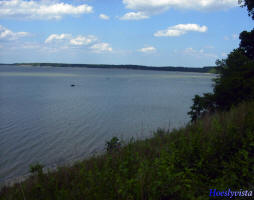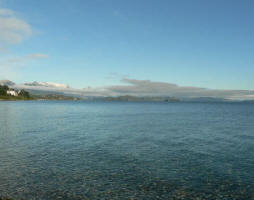 Interview with Moroccan Royal aide, André Azoulay on the Union for the Mediterranean
Interview with Moroccan Royal aide, André Azoulay on the Union for the Mediterranean
 André Azoulay is the archetypal princely adviser: diplomatic,
discreet and politically adept. He is familiar with the corridors of
power, not only in Morocco, but also on the international scene.
Azoulay’s determination to bring together the people of the
Mediterranean led to his appointment as President of the Anna Lindh
foundation, a network which promotes dialogue among countries of the
region. Being a Jewish adviser to the Muslim King of Morocco, he is
uniquely positioned to press for the building of a Palestinian state
which recognises the existence of Israel.
André Azoulay is the archetypal princely adviser: diplomatic,
discreet and politically adept. He is familiar with the corridors of
power, not only in Morocco, but also on the international scene.
Azoulay’s determination to bring together the people of the
Mediterranean led to his appointment as President of the Anna Lindh
foundation, a network which promotes dialogue among countries of the
region. Being a Jewish adviser to the Muslim King of Morocco, he is
uniquely positioned to press for the building of a Palestinian state
which recognises the existence of Israel.
euronews: What do you think are the main strategies which have to be implemented with regard to the Mediterranean Union?
André Azoulay, Special Adviser to King Mohammed VI: The feeling that one side is granting something to the other must be replaced with a sense of parity. And once the technicians, the eurocrats and politicians have finished talking, you also have to think about the men and women you want to draw up the future. These men and women have to be committed ideologically, politically, culturally and socially.
euronews: The economic dimension is very important —business and trade — but in the end what is missing in Europe is a political dimension, even in the Maghreb.
Azoulay: I am less pessimistic than you are. On the contrary, I think right now, that we are in the process together of re-creating a new momentum for the Euro-Mediterranean. It is not a gimmick, a measure which would be a luxury for some people. It is a must. A political imperative, a human imperative. But it is also a chance for Europe, maybe through the Euro-Mediterranean, to re-discover an influence which has been partly lost with globalisation. Because when you speak of the Euro-Mediterranean, you can not erase, or obscure the most difficult issues which have confronted the international community. I am thinking mainly of this yet-to-be-created peace between the Palestinians and the Israelis. I am thinking of the situation in Iraq, or Afghanistan — the wider picture anyway — which is also affected by very strong tensions between the great civilisation of the Islamic, Muslim Arab world, and the western world, the world of western Christianity.
euronews: You have almost always advocated the creation of a Palestinian state alongside the state of Israel. Do you think that time has come?
Azoulay: The whole world today recognises both the legitimacy and the absolute necessity to have a Palestinian state, which has re-discovered its identity, whose rights have been restored, but the world has not arrived at that point yet. And that is not because there is a conflict of religion; not because there are religious and political leaders who have, wrongly, wanted to channel our respective beliefs and religions. By that logic, we are all hostages to some kind of buyout, a takeover-bid for our spiritual domaine, for our private convictions. You know, whatever, Muslim, Jew, Christian, in the end we all answer to the same one up there. The way I was brought up in the town of Essaouira in southern Morocco as a Moroccan Jew, was to look out for my neighbour, and my neighbour was a was a Moroccan Muslim. Today, in my mind, he is a Palestinian, and this neighbour must benefit from all the same rights as me. So that is what I’m pushing for today — just as I did yesterday and as I will tomorrow — pushing for a Palestinian state. I am also fighting to protect my true beliefs, if not, it would not make sense.
euronews: When Pope Benedict visited France recently the question of a positive secularism was raised. What you just said reflects that concept a little, doesn’t it? What do you think about the idea of positive secularism?
Azoulay: I subscribe to it, but I think everyone among us must be driven by the will to do everything to ensure that these choices are not simply theories and rhetoric. We all have to apply them to our daily lives, and we must be committed to them.
euronews: Morocco was one of the first countries among the Maghreb and the Arab world to instigate a process of democratic reform. How is Morocco dealing with the return of instability, with al-Qaeda building itself up in the Maghreb and sub-Saharan Africa – two areas which are obviously of interest to Morocco?
Azoulay: The building of this modern Morocco, this open Morocco, a Morocco anchored in its roots and identity, that is irreversible. The problems you raised just now are not Moroccan problems. They are multi-national, they are international. They could exist eventually in Morocco, that has been considered, but they will be short-term.
euronews: Do you think that, generally, democratisation and the war against terrorism are compatible?
Azoulay: Absolutely, in fact I believe building this open and democratic society, which is growing in its consensus to move as far as possible in that direction, is the best response.
| Contact information |
Euro News
|
|---|---|
| News type | Inbrief |
| File link |
http://www.euronews.net/en/article/29/09/2008/interview-moroccan-royal-aide-andre-azoulay/ |
| Source of information | Euro Mediterranean Blog / Euro News |
| Keyword(s) | Mediterranean-Union |
| Subject(s) | POLICY-WATER POLICY AND WATER MANAGEMENT |
| Geographical coverage | Morocco, Euromed |
| News date | 24/10/2008 |
| Working language(s) | ARABIC , ENGLISH , FRENCH |
 you are not logged in
you are not logged in





